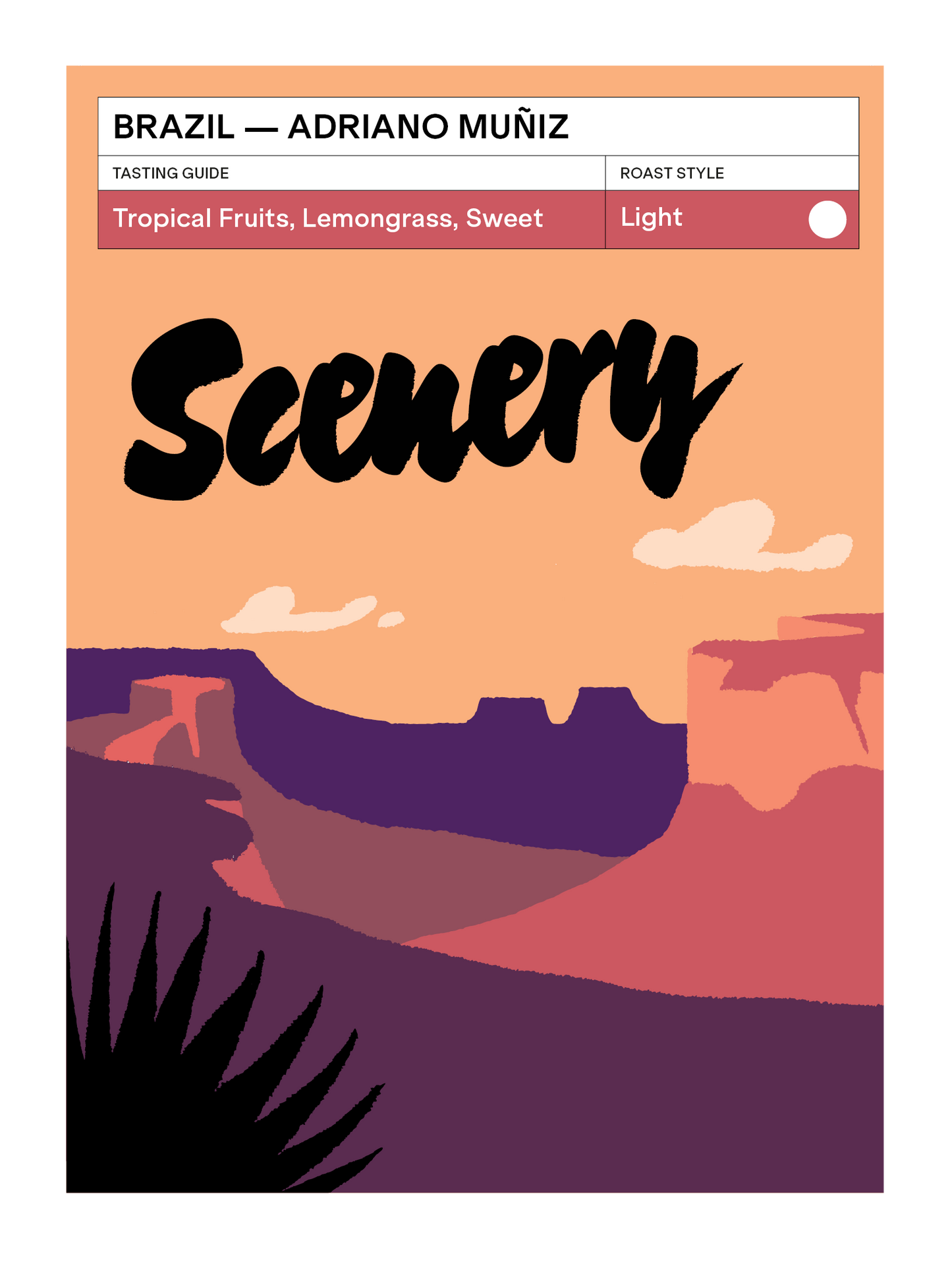
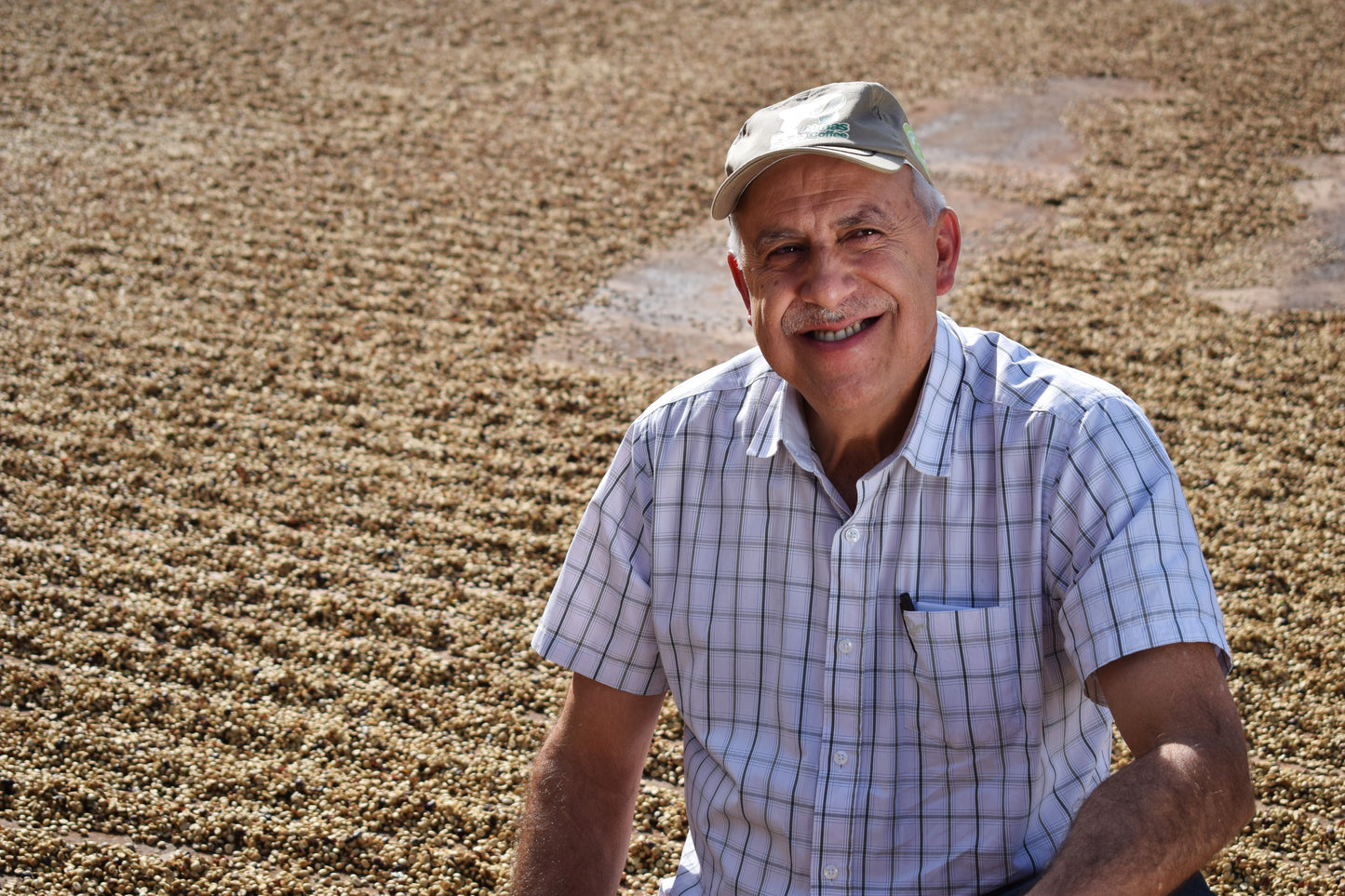
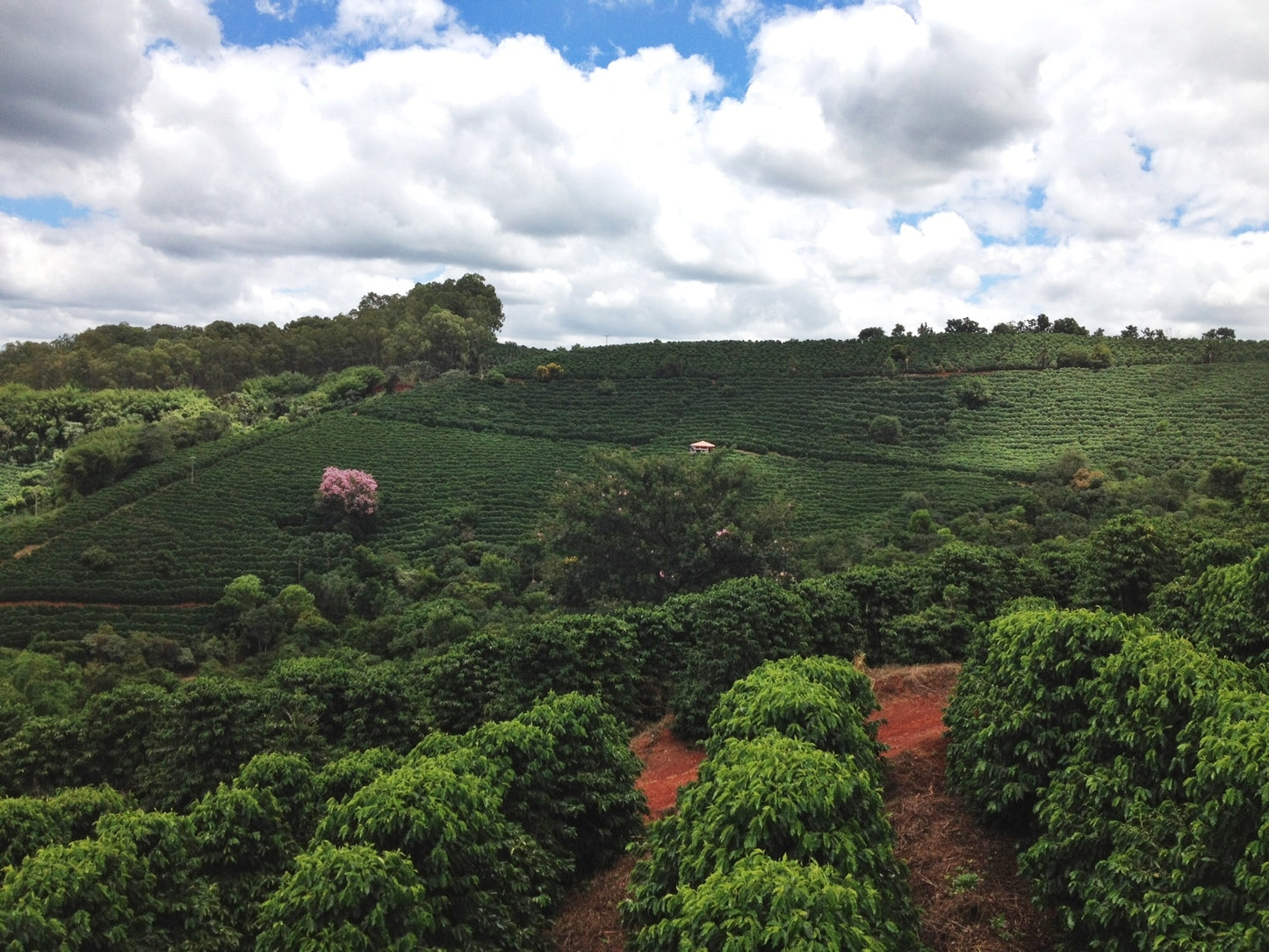
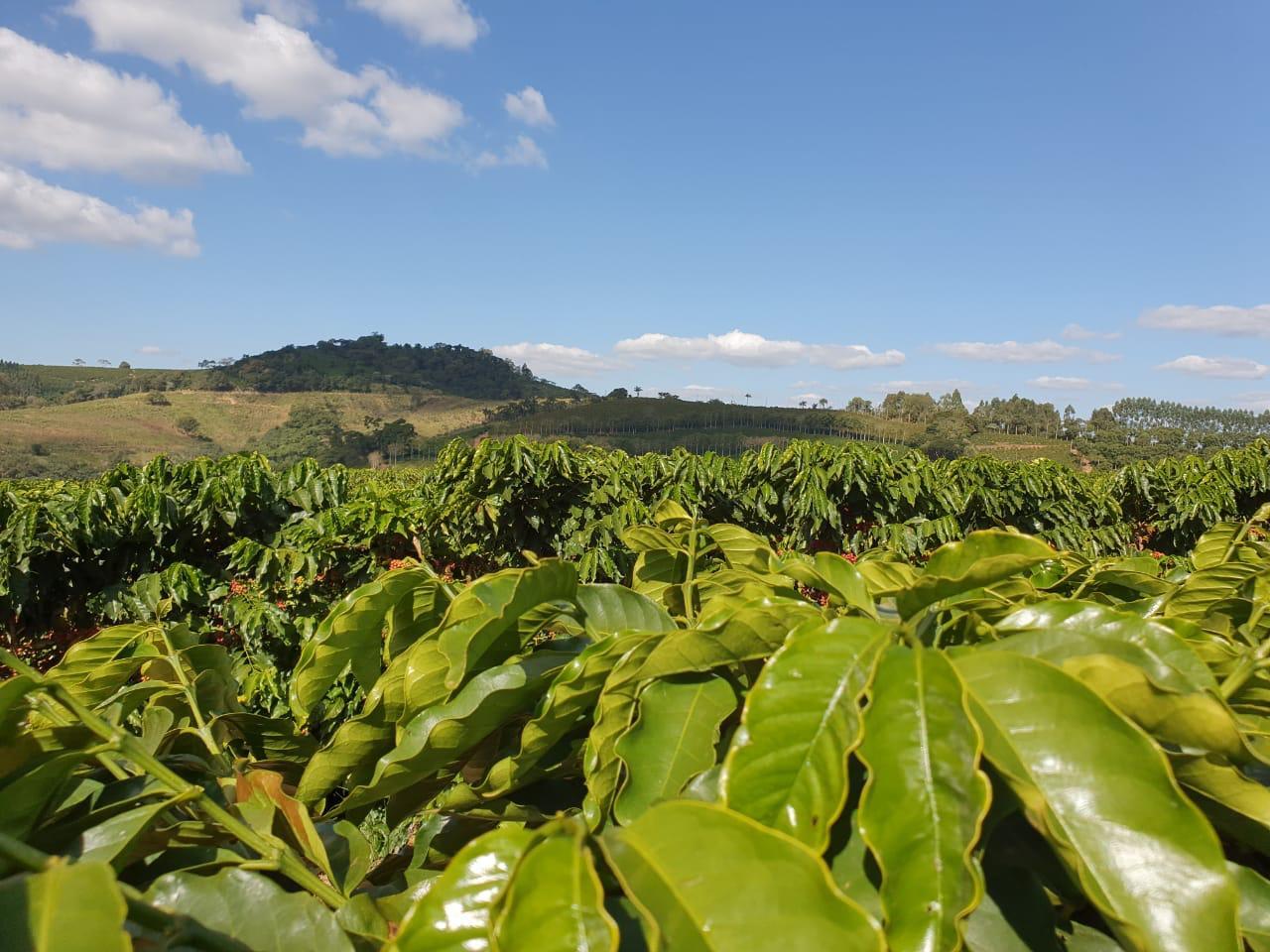
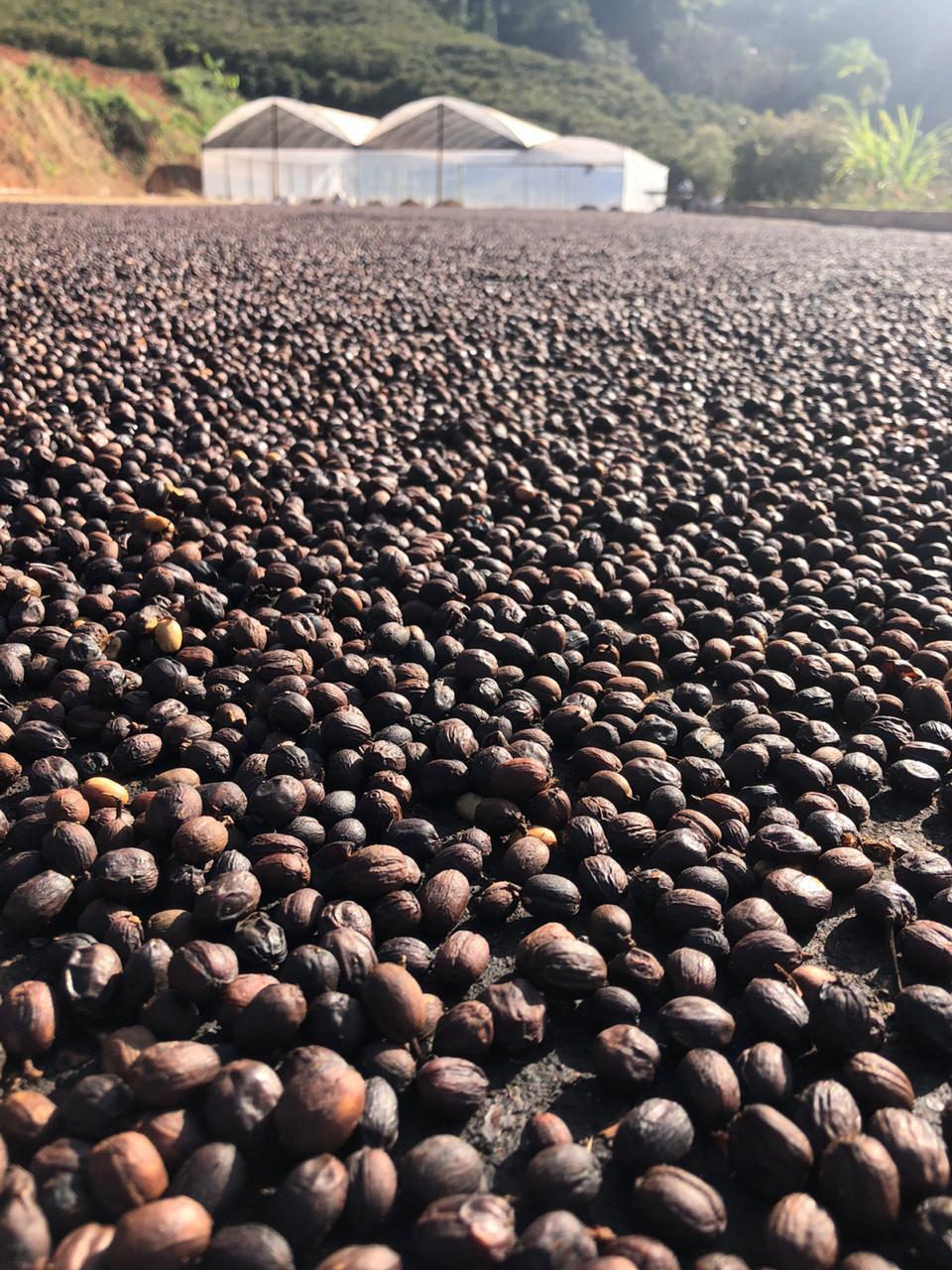
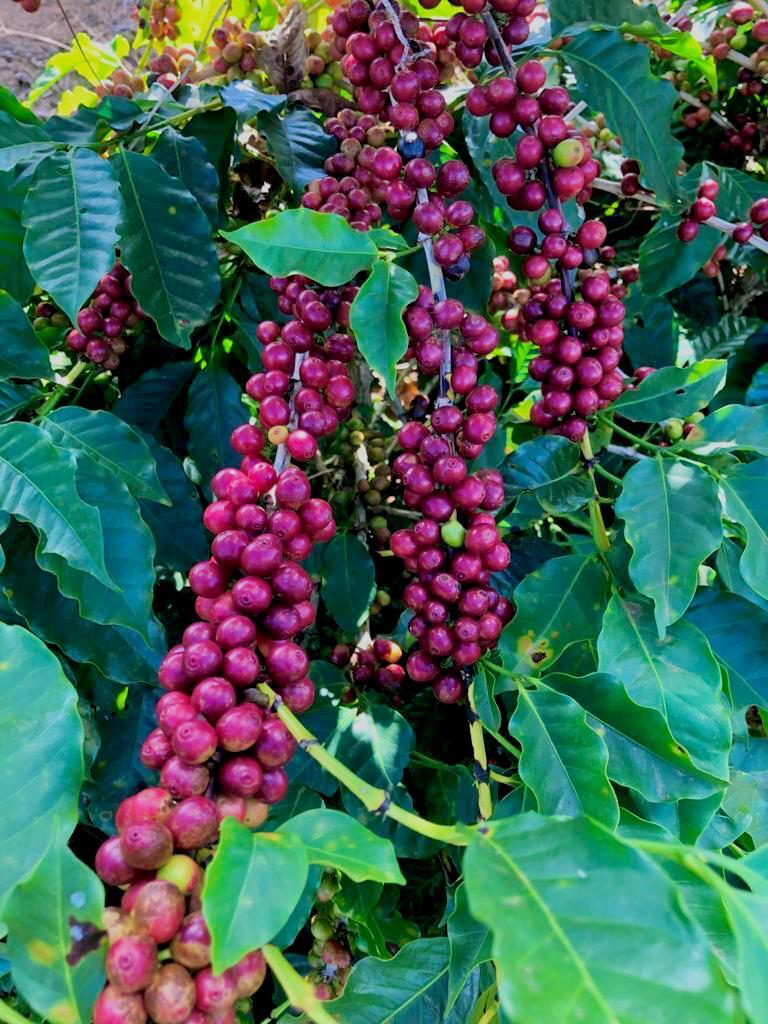
Brew Guide:
Best Brewed with: Filter
Light roaster influence: We're keeping it all integrated. If we roast "lightest" on this one it can bring in a deceptive hint of peanut (more like "classic" Brazil), so we're pushing a smidge further - tweaking for full character and bright profile
Best rested for: 2-3 weeks
For Filter: Brew 62-64g per litre, 96°C
For Espresso: 18g in, 42-44g out, 28-32s
Aromas of lemongrass & stewed apple, with hint macadamia. In the cup there’s some punchy pineapple and ripe passionfruit, alongside brown butter, tonka bean, lemongrass & almond butter. As it cools, the sweetness increases (becoming milk chocolate esq) with a slight rounding off in the acidity
Traceability:
Country of Origin: |
Brazil |
Region: |
Cabo Verde, Sul de Minas |
Producers: |
Adriano Muñiz |
Farm: |
Fazenda Das Almas |
Variety: |
Icatu |
Elevation: |
1100 MASL |
Process: |
Anoxic Natural: Cherries picked between ripe and overripe (some on-tree fermentation). Cherries then density separated, followed by dry fermentation in sealed tanks with an air-lock for 120 hrs. Cherries slowly dried in two stages - first on patio, followed by mechanical. |
Import Partner: |
Nordic Approach |
Harvest: |
23/24 - Arrived UK: Nov 23 Second harvest purchasing from Adriano |
The Story
Fazenda Das Almas is a 109 HA farm managed by the Muñiz family since 1965 in the Cabo Verde region of Brazil. Adriano Muñiz, who took over from his father, steered the farm towards quality enhancement, adapting to market changes and the rise of speciality coffee.
They invested in infrastructure and processing methods, embracing various fermentation techniques like carbonic maceration and yeast inoculation. The farm grows a mixture of varieties that are well adapted to the lower elevations found in Brazil, including the one this lot is composed of - Icatu, which is a high yielding disease resistant hybrid (Coffea canephora x Coffea arabica). Many Robusta/Arabica hybrids we find in the world use Timor Hybrids as part of the lineage. The Timor hybrid was a naturally occurring cross between the karyotypically distinct species - different numbers of chromosomes makes them exceptionally hard to make viable, fertile offspring first discovered in Timor Leste (hence the name). It was a surprise to us to find out that there are more lineages of Arabica-Robusta hybirds - the Timor hybrid has been so heavily used in coffee breeding programs as to be the default assumption when we see "robusta + arabica"!
The Icatu cross was created by first treating the Robusta (Coffea canephora) parent with colchicine, a natural compound derived from derived from the Autumn Crocus (Colchicum autumnale), which doubles its chromosome number. This step allowed it to successfully cross with Red Bourbon (Coffea arabica), resulting in a hybrid with improved disease resistance, yield, and adaptability from the genetic vigour. These hybrids tend to thrive at the lower altitudes we find in Brazil, and take well to full sun, high input farming that the geography and development affords.
The dedication to quality and control over process shows in Fazenda Das Almas - Adriano even has his own on-site milling facilities, with the ability to do pre-sorting and density based separation. This sort of vertical integration is possible with farms in Brazil, as with an annual production of over 4000 bags (nearly 13 containers of coffee!) the return on investment is viable. It’s a whole different sense of scale compared to a smallholder farmer with 1-3 HA, and mostly down to the unique geography of Brazil that allows for mechanisation.
The farm's commitment to sustainability is evident in their environmental efforts, dedicating a significant portion (37%) of the land to native preservation and implementing clean energy solutions like biogas generators and solar panels. Their community involvement extends to supporting local educational initiatives, showcasing their dedication beyond coffee production.
These efforts culminated in notable recognition, with Adriano Muñiz securing a top position in the Especialíssimo Award. This accolade underscores their excellence in coffee production, blending traditional methods with modern innovations, and their significant impact on both the environment and the local community.
- Choosing a selection results in a full page refresh.
- Opens in a new window.






